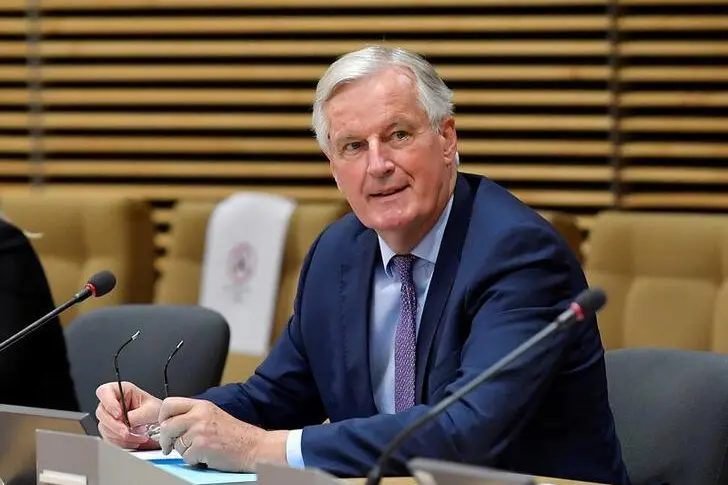PHOTO
In July’s intensive round of Brexit talks, which ended on Thursday, differences narrowed enough to enable an imminent EU-UK trade deal in coming weeks — but it could all still collapse because the economic differences between the “thin” agreement now on the table and a no-deal outcome have shrunk so much that political incentives for a final breakthrough are much reduced.
Starting with the positives, both sides have made important concessions, despite the negative mood music surrounding the talks. The chief EU negotiator Michel Barnier indicated that the trade agreement’s enforcement mechanism body could be an institution other than the European Court of Justice, whose jurisdiction the UK rejects.
Meanwhile Barnier’s UK counterpart David Frost signalled a new willingness to abandon the UK’s hope of securing individual treaties by sector, rather than one all-encompassing agreement. The latter is favored by Brussels because of its experience with the complex and sometimes challenging relationship with Switzerland, with dozens of treaties covering different issues.
Moreover, EU decision makers perceive that if a single agreement covers all key elements of the trade relationship, enforcement of treaty breaches could be easier; if one side reneges on their obligations, they could face restrictions in market access and co-operation across a much wider range of policy areas and sectors.
So despite the negativity surrounding the talks, progress in these areas means there may now be a “landing zone” for a deal. However, the proposed is much “thinner” (or “bare bones” as Barnier puts it) than what was being talked about only a few months ago. This means that political incentives for both sides to go the last mile now, and avoid no-deal, are much reduced.
This is critical because two big, politically controversial issues still separate the two teams: The EU’s demand for guarantees of fair competition (“level playing field” provisions), and fishing rules.
Fishing is not a major economic issue for either side, but it is politically charged in coastal regions of the UK, particularly in Scotland, and in key EU states such as France. Reaching a political compromise on this issue will be tricky, and it remains plausible that fishing alone could sink the whole trade deal.
What makes these issues harder still is that resolution will be probably be needed no later than September, and the clock is ticking fast with the next formal round of talks on Aug. 17. So, realistically, only several weeks remain to hammer out a deal if it is to be legally operational by the end of the year.
The timetable would require, after the political outlines of a deal in September, for the treaty text (hundreds if not thousands of pages) to be completed and translated into several European languages by October so it can be signed off by UK and EU leaders that month. This would then allow legislatures a few weeks to scrutinize the bill with a view to ratifying it no later than December.
While the EU needs to show more compromise, it is the UK government that seems most inflexible in its approach. Its decision to completely rule out the possibility of an extension to the transition period at the end of the year means not just that there is growing pressure on the talks now, but also that any Brexit deal can now only be “thin” rather than deep and comprehensive.
There are several interpretations of the British team’s dogmatic stance, which comes at a time when dozens of civil servants have been redeployed from Brexit duties to fighting fires elsewhere in government because of the pandemic; first, that it is designed to convince the EU that London doesn’t mind whether it gets a deal by the end of the year, in the hope that a deal then emerges on better terms for the UK.
While this explanation is the most generous to the good faith of the UK team in the talks, there are other plausible possibilities. One is that Prime Minister Boris Johnson’s team has no intention of signing up to any terms on offer from the EU without a big EU compromise on “level playing field” rules and fishing, and that with the economic recession accompanying the coronavirus outbreak (the worst in three centuries, the Bank of England predicts), leaving on World Trade Organization terms is a less daunting prospect for Downing Street that it appeared before the pandemic.
With the bottom lines for both London and Brussels still unclear, the only certainty is that the stakes remain huge and historic for both sides. Delivering a deal will need clear, coherent, and careful strategic thinking in August and September so that they can move toward a new constructive partnership that can bring benefits to both in a world still shaken by the coronavirus crisis.
• Andrew Hammond is an Associate at LSE IDEAS at the London School of Economics.
Copyright: Arab News © 2020 All rights reserved. Provided by SyndiGate Media Inc. (Syndigate.info).





















